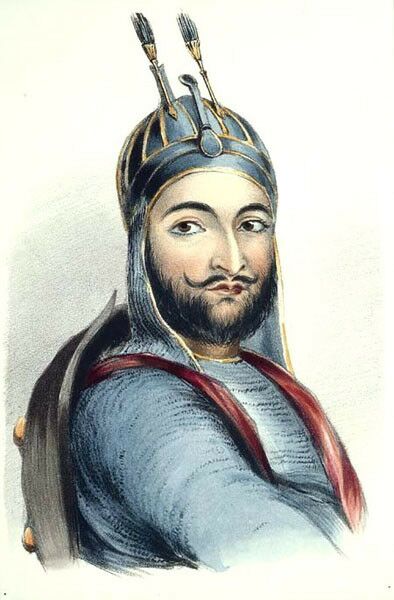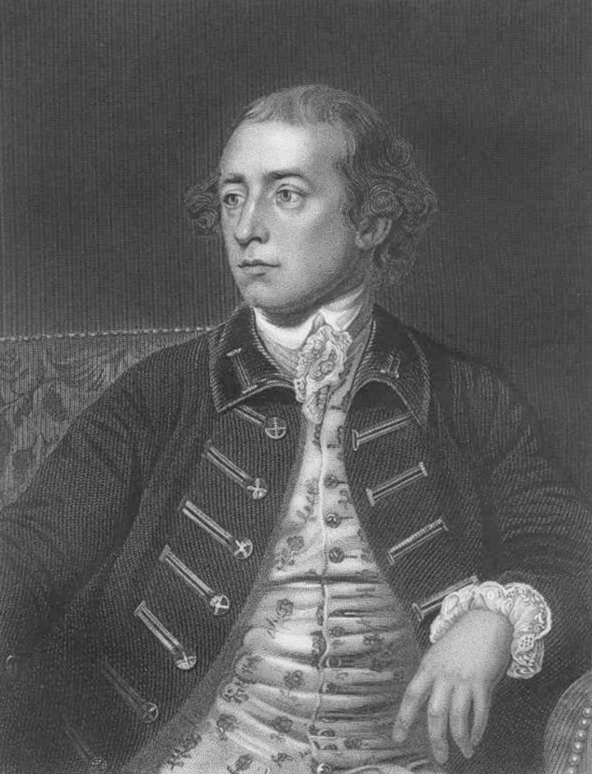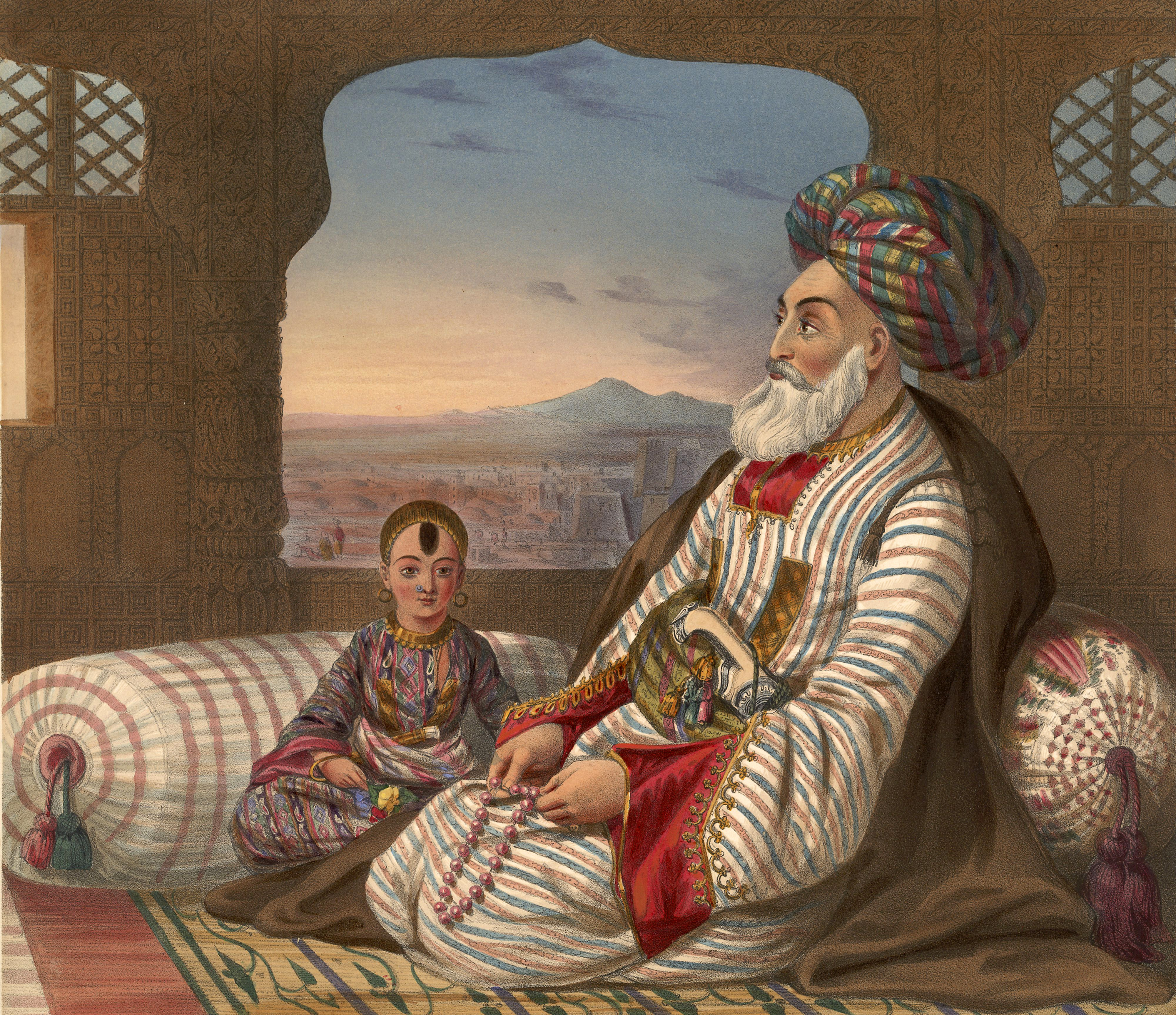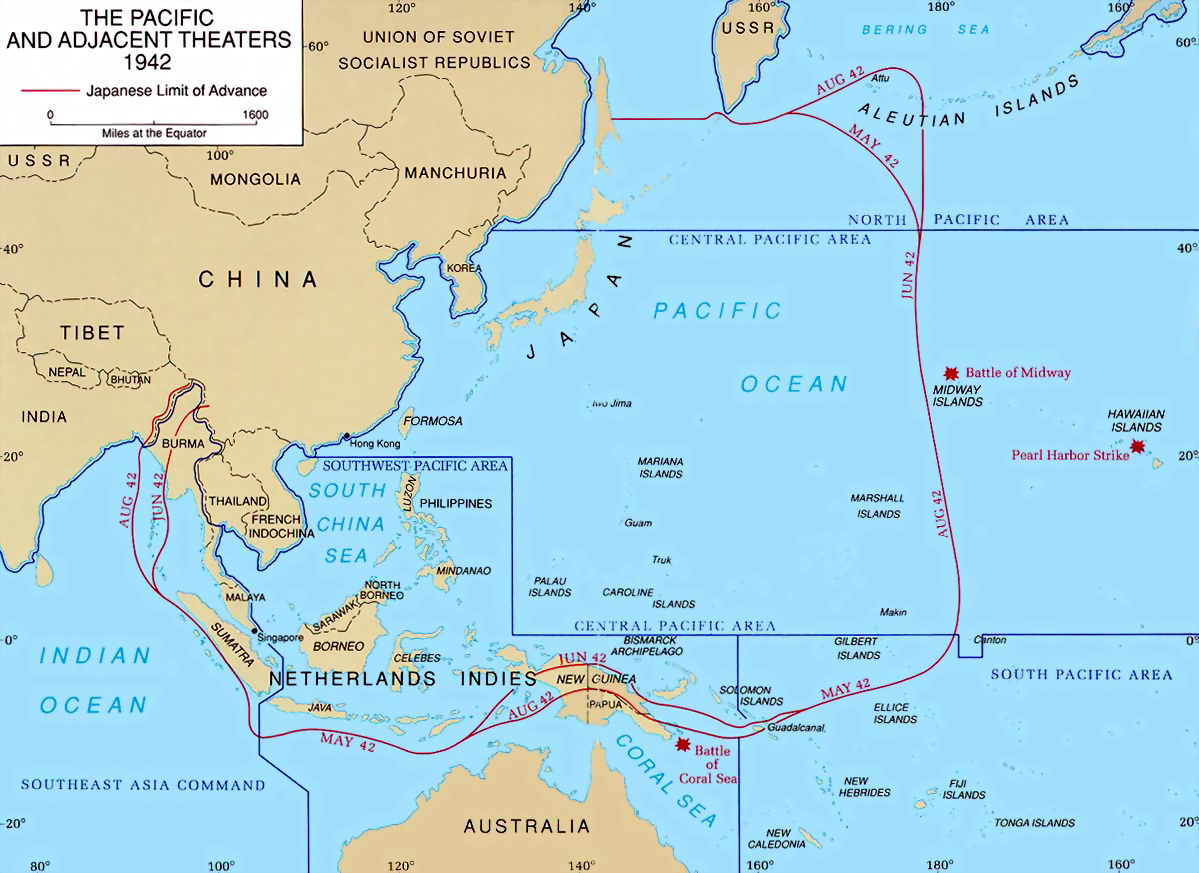|
Massacre Of Elphinstone's Army
The 1842 retreat from Kabul was the retreat of the British and East India Company forces from Kabul during the First Anglo-Afghan War. An uprising in Kabul forced the then-commander, Major-General William Elphinstone, to fall back to the British garrison at Jalalabad. In early January 1842, as the army and its numerous dependants and camp followers began their march, they came under attack from Afghan tribesmen. Many in the column died of exposure, frostbite or starvation, or were killed during the fighting. At the beginning of the conflict, British and East India Company forces had defeated the forces of Afghan Emir Dost Mohammad Barakzai and in 1839 occupied Kabul, restoring the former ruler, Shah Shujah Durrani, as emir. However a deteriorating situation made their position more and more precarious, until an uprising in Kabul forced Maj. Gen. Elphinstone to withdraw. To this end he negotiated an agreement with Wazir Akbar Khan, one of the sons of Dost Mohammad Barakzai, ... [...More Info...] [...Related Items...] OR: [Wikipedia] [Google] [Baidu] |
44th (East Essex) Regiment Of Foot
The 44th Regiment of Foot was an infantry regiment in the British Army, raised in 1741. Under the Childers Reforms it amalgamated with the 56th (West Essex) Regiment of Foot to form the Essex Regiment in 1881. History Early history The regiment was raised by Colonel James Long as James Long's Regiment of Foot in 1741. The regiment saw active service at the Battle of Prestonpans in September 1745 during the Jacobite rising. Ranked as the 55th Regiment of the Line in 1747, the regiment was renamed the 44th Regiment of Foot in 1751. It embarked for North America in January 1755 for service in the French and Indian War and took part in the Battle of the Monongahela where Colonel Sir Peter Halkett was killed while commanding the regiment. The regiment went on to fight at the Battle of Carillon in July 1758, the Battle of Fort Niagara in July 1759 and finally the Montreal Campaign in July to September 1760 before returning home in 1765. The regiment returned to North America ... [...More Info...] [...Related Items...] OR: [Wikipedia] [Google] [Baidu] |
William Brydon
William Brydon (10 October 1811 – 20 March 1873) was a British doctor who was assistant surgeon in the British East India Company Army during the First Anglo-Afghan War, famous for reportedly being the only member of an army of 4,500 men, plus 12,000 accompanying civilians, to reach safety in Jalalabad at the end of the 1842 retreat from Kabul. Early life Brydon was born in London, second son and second of eight children of merchant William Brydon (1761-1843) and Mary Ann (1783-1841), née Comberbach. He studied medicine at University College London and at the University of Edinburgh. He subsequently was appointed as a surgeon in the Bengal Army of the British East India Company. Retreat from Kabul In 1841 William Brydon was posted to Afghanistan as the assistant surgeon of Shah Shuja's Contingent—a British officered infantry force recruited in India to provide protection for the British-backed ruler in Kabul. This mercenary unit formed part of a combined British and I ... [...More Info...] [...Related Items...] OR: [Wikipedia] [Google] [Baidu] |
Kandahar
Kandahar is a city in Afghanistan, located in the south of the country on Arghandab River, at an elevation of . It is Afghanistan's second largest city, after Kabul, with a population of about 614,118 in 2015. It is the capital of Kandahar Province and the centre of the larger cultural region called Loy Kandahar. The region around Kandahar is one of the oldest known areas of human settlement. A major fortified city existed at the site of Kandahar, probably as early as 1000–750 BC,F.R. Allchin (ed.)''The Archaeology of Early Historic South Asia: The Emergence of Cities and States'' (Cambridge University Press, 1995), pp.127–130 and it became an important outpost of the Achaemenid Empire in the 6th century BC.Gérard Fussman"Kandahar II. Pre-Islamic Monuments and Remains", in ''Encyclopædia Iranica'', online edition, 2012 Alexander the Great laid the foundation of what is now Old Kandahar (in the southern section of the city) in the 4th century BC and named it Alexandria ... [...More Info...] [...Related Items...] OR: [Wikipedia] [Google] [Baidu] |
Bolan Pass
Bolan Pass () is a valley and a natural gateway through the Toba Kakar range in Balochistan province of Pakistan. It is situated south of Pakistan's border with Afghanistan. The pass is an stretch of the Bolan River valley from Rindli in the south to Darwāza near Kolpur in the north. It is made up of a number of narrow gorges and stretches.Bolān Pass ''Encyclopædia Britannica'' 4 October 2014. It connects with by road and railway. Being strategically located, it has also been used by traders, invaders, and nomadic tribes as a gateway to and from South Asia. The Bolān Pass is an important pass on the ... [...More Info...] [...Related Items...] OR: [Wikipedia] [Google] [Baidu] |
Willoughby Cotton
Lieutenant-General Sir Willoughby Cotton (1783 – 4 May 1860) was an English soldier in the British Army. Family Willoughby Cotton was born in 1783, to Vice-Admiral Rowland Cotton and Elizabeth Aston. They also had a daughter, Sydney Arabella Cotton. Rowland Cotton was from a well-established Chester family, was the second son of Sir Lynch Cotton, 4th Baronet, while Elizabeth was the eldest daughter of Sir Willoughby Aston, 5th Baronet Aston, of Aston, Chester. Cotton married Lady Augusta Maria Coventry on 16 May 1806 in Marylebone, London. They had three children together, Augusta Mary Cotton, Willoughby Cotton and Maj.-Gen. Corbet Cotton. School years Willoughby Cotton entered Rugby School at the age of 12 in 1795. Cotton, aged 14, was a ringleader in the " Great Rebellion" of November 1797. Aggrieved by the attitude of the Head Master, Dr. Henry Ingles (1794–1806), following the breaking of a window, students blew his classroom door off with gunpowder and followed th ... [...More Info...] [...Related Items...] OR: [Wikipedia] [Google] [Baidu] |
Alexander Burnes
Captain Sir Alexander Burnes (16 May 1805 – 2 November 1841) was a Scottish explorer, military officer and diplomat associated with the Great Game. He was nicknamed Bokhara Burnes for his role in establishing contact with and exploring Bukhara. His memoir, ''Travels into Bokhara'', was a bestseller when it was first published in 1835. Early life Burnes was born on 16 May 1805 in Montrose, Scotland, as the fourth son of James Burnes (1780–1852) the local provost, who was first cousin to the poet Robert Burns. His brother was the doctor and surgeon James Burnes. At the age of sixteen, Alexander joined the army of the East India Company and while serving in India, he learned Urdu and Persian, and obtained an appointment as an interpreter at Surat in 1822. He was transferred to Kutch in 1826 where he was based at Bhuj for three years. As assistant to the political agent, he took an interest in the history and geography of north-western India and the adjacent ... [...More Info...] [...Related Items...] OR: [Wikipedia] [Google] [Baidu] |
William Hay Macnaghten
Sir William Hay Macnaghten, 1st Baronet (24 August 179323 December 1841), was a British civil servant in India, who played a major part in the First Anglo-Afghan War. Life William was the second son of Sir Francis Macnaghten, 1st Baronet, judge of the supreme courts of Madras and Calcutta, and was educated at Charterhouse. He went to Madras as a cadet in 1809, but in 1816 joined the Bengal Civil Service. He displayed a talent for languages and published several treatises on Hindu and Islamic law. His political career began in 1830 as secretary to Lord William Bentinck; and, in 1837, he became one of the most trusted advisers of the governor-general, Lord Auckland, with whose policy of supporting Shah Shujah against Dost Mahommed Khan, the reigning Amir of Kabul, Macnaghten became closely identified. He was created a baronet in 1840, and four months before his death was nominated to the governorship of Bombay. As the British Envoy and Political Agent in Kabul, he came into ... [...More Info...] [...Related Items...] OR: [Wikipedia] [Google] [Baidu] |
Governor-General Of India
The governor-general of India (1833 to 1950, from 1858 to 1947 the viceroy and governor-general of India, commonly shortened to viceroy of India) was the representative of the monarch of the United Kingdom in their capacity as the emperor or empress of India and after Indian independence in 1947, the representative of the monarch of India. The office was created in 1773, with the title of governor-general of the Presidency of Fort William. The officer had direct control only over his presidency but supervised other East India Company officials in India. Complete authority over all of British territory in the Indian subcontinent was granted in 1833, and the official came to be known as the governor-general of India. In 1858, because of the Indian Rebellion the previous year, the territories and assets of the East India Company came under the direct control of the British Crown; as a consequence, company rule in India was succeeded by the British Raj. The governor-general ( ... [...More Info...] [...Related Items...] OR: [Wikipedia] [Google] [Baidu] |
George Eden, 1st Earl Of Auckland
George Eden, 1st Earl of Auckland, (25 August 1784 – 1 January 1849) was an English people, English Whig (British political faction), Whig politician and colonial administrator. He was thrice First Lord of the Admiralty and also served as Governor-General of India between 1836 and 1842. The province of Auckland, which includes the present regions of Northland, Auckland, Waikato, Bay of Plenty and Gisborne along with the city of Auckland, in New Zealand, was named after him. Lord Auckland signed the Tripartite Treaty in June 1838 with Maharaja Ranjit Singh of the Sikh Empire and Shah Shujah Durrani, Shah Shuja of Afghanistan. Background and education Born in Beckenham, Kent, Auckland was the second son of William Eden, 1st Baron Auckland, and Eleanor, daughter of Sir Gilbert Elliot, 3rd Baronet, of Minto, Sir Gilbert Elliot, 3rd Baronet. His sister was the traveller and author Emily Eden, who accompanied her brother to India and wrote about her experiences there. He was e ... [...More Info...] [...Related Items...] OR: [Wikipedia] [Google] [Baidu] |
European Influence In Afghanistan
European influence in Afghanistan has been present in the country since the Victorian era, when the competing imperial powers of Britain and Russia contested for control over Afghanistan as part of the Great Game. Rise of Dost Mohammad Khan After the decline of the Durrani dynasty in 1823, Dost Mohammad Khan established the Barakzai dynasty. Dost Mohammad achieved prominence among his brothers through clever use of the support of his mother's Qizilbash tribesmen and his own youthful apprenticeship under his brother, Fateh Khan. However, in the same year, the Afghans lost their former stronghold of Peshawar to the Sikh Khalsa Army of Ranjit Singh at the Battle of Nowshera. The Afghan forces in the battle were supported by Azim Khan, half-brother of Dost Mohammad. In 1834 Dost Mohammad defeated an invasion by the former ruler, Shuja Shah Durrani, but his absence from Kabul gave the Sikhs the opportunity to expand westward. Ranjit Singh's forces moved from Peshawar into terr ... [...More Info...] [...Related Items...] OR: [Wikipedia] [Google] [Baidu] |
Russian Empire
The Russian Empire was an empire that spanned most of northern Eurasia from its establishment in November 1721 until the proclamation of the Russian Republic in September 1917. At its height in the late 19th century, it covered about , roughly one-sixth of the world's landmass, making it the list of largest empires, third-largest empire in history, behind only the British Empire, British and Mongol Empire, Mongol empires. It also Russian colonization of North America, colonized Alaska between 1799 and 1867. The empire's 1897 census, the only one it conducted, found a population of 125.6 million with considerable ethnic, linguistic, religious, and socioeconomic diversity. From the 10th to 17th centuries, the Russians had been ruled by a noble class known as the boyars, above whom was the tsar, an absolute monarch. The groundwork of the Russian Empire was laid by Ivan III (), who greatly expanded his domain, established a centralized Russian national state, and secured inde ... [...More Info...] [...Related Items...] OR: [Wikipedia] [Google] [Baidu] |
Battle Of Singapore
The fall of Singapore, also known as the Battle of Singapore, took place in the South–East Asian theatre of the Pacific War. The Empire of Japan captured the British stronghold of Singapore, with fighting lasting from 8 to 15 February 1942. Singapore was the foremost British military base and economic port in South–East Asia and had been of great importance to British interwar defence strategy. The capture of Singapore resulted in the largest British surrender in history. Before the battle, Japanese General Tomoyuki Yamashita had advanced with approximately 30,000 men down the Malayan Peninsula in the Malayan campaign. The British erroneously considered the jungle terrain impassable, leading to a swift Japanese advance as Allied defences were quickly outflanked. The British Lieutenant-General, Arthur Percival, commanded 85,000 Allied troops at Singapore, although many units were under-strength and most units lacked experience. The British outnumbered the Japanese but mu ... [...More Info...] [...Related Items...] OR: [Wikipedia] [Google] [Baidu] |








